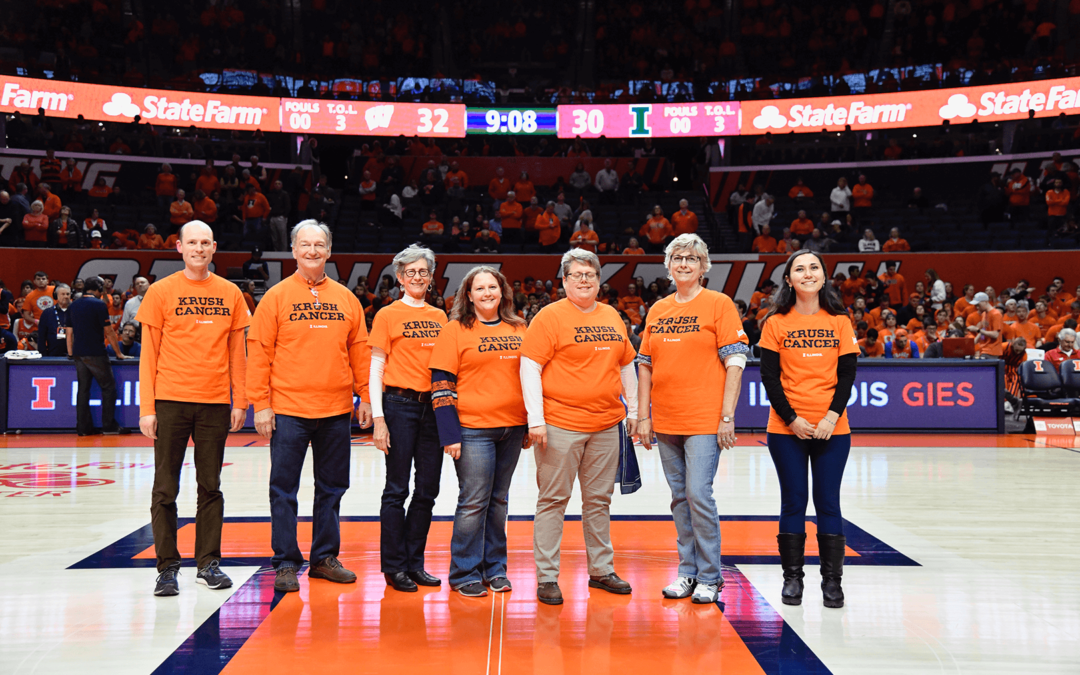This article originally appeared in Strategies Oncology Magazine.
The Cancer Center at Illinois began in 2011 as the Cancer Community led by current Director, Rohit Bhargava Ph.D., and a group of over 50 University of Illinois faculty. The initial members started to organize regular activities and enabled interactions among faculty through symposia, workshops, and thematic research groups. The group has now grown to over one hundred faculty members, several hundred postdoctoral researchers, and students.
Since its inception, CCIL has sustained progress in multi-year phases, including the growth of membership, initiation of research and student programs, regular symposia and meetings, increased multi-disciplinary collaboration, and growth of shared laboratory resources. As a result, CCIL has made significant progress in multi-principal investigator activities, cancer research funding, and faculty hiring in cancer research at the University of Illinois Urbana-Champaign. CCIL educational programs and members have
also served to start new internal and external collaborations, including those with Carle Foundation Hospital, Mayo Clinic, the University of Illinois Chicago, and more.
An integral part of the CCIL is the Cancer Research Advocacy Group (CRAG). CRAG provides a vital perspective in the fight against cancer, offering input by cancer survivors to researchers, and clinicians into fundamental research, clinical trials, outreach, and education. Dr. Bhargava comments, “In today’s day and age, it has become quite difficult to do cancer research so we rely on many teams to do things.” He continues, “Our research teams benefit from input from CRAG survivor members by learning of the problems and getting inspired by people who have survived cancer and have an understanding of what it takes. When a researcher
succeeds and has an idea of how his results can be used, talking to CRAG survivor members provides insights as to other applications where research can have an impact.”
“There are lots of benefits when involving CRAG, from an intellectual, emotional, delivery, and outcomes of research point of view, and these were our thoughts in establishing CRAG,” Bhargava concludes.
Zeynep Madak-Erdogan Ph.D. is founding member of and cancer researcher who works closely with CRAG. She explains, “The advocacy that CRAG engages in is not the traditional lobbying of government officials. Rather,
it is advocacy within research teams, in our community, and occasionally with funding
organizations.”
She comments further, “Once a month our research teams get together and the scientists present their
research and the advocates have an opportunity to question them, hopefully resulting in good discussion and a partnership in the ensuing research.”
“As a result of CCIL receiving a training grant,” Madak-Erdogan pointed out, “We have been able to train our advocates in how research is conducted including all the basics of cancer biology. We have had field trips for CRAG members to other cancer centers where they can see how patient advocates contribute to cancer research in academic settings and make a difference.”
“In our case,” she continues, “our advocates are supporting the research that is happening at our university. Additionally, some funding sources require the participation of patient advocates as part of the grant process. CRAG has been a great help to our research efforts. And, when a research paper is promoted in media news outlets, it is often the advocates who present it in plain language.”
Dorrine Murphy is a new CRAG member, and, when asked what prompted her to join, she replied, “I have led a very healthy lifestyle my entire life, and I was diagnosed at age 53 with breast cancer, with no history at all. Then at age 58, I was diagnosed with thyroid cancer, again with no history. So I started doing research into what might have caused this, not just for my sake, but also for my two daughters.”
“So I started to get involved with different organizations,” she said, and then someone from
an Illinois cancer association suggested that she become involved with CRAG. Murphy is interested in other people and their experiences. She is now five years cancer-free from breast cancer and two years free from
thyroid cancer, and she feels that, now, she can help others.
To learn more about CRAG and how you can get involved, click here.
– Written by the Michael Kelly, Strategies Oncology Magazine

